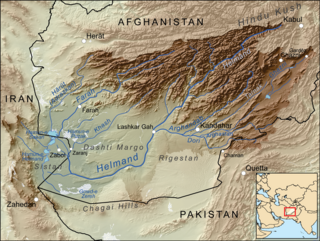Events
329 BC
By place
Macedonian Empire
- From Phrada, Alexander the Great presses on up the valley of the Helmand River, through Arachosia, and over the mountains past the site of modern Kabul into the country of the Paropamisade, where he founds Alexandria by the Caucasus.
- In Bactria, Bessus raises a national revolt in the eastern satrapies using the title of King Artaxerxes V of Persia.
- Crossing the Hindu Kush northward, probably over the Khawak Pass, [1] Alexander brings his army, despite food shortages, to Drapsaka. Outflanked, Bessus flees beyond the Oxus river.
- Marching west to Bactra (Zariaspa), Alexander appoints Artabazus of Phrygia as the satrap of Bactria.
- Crossing the Oxus, Alexander sends his general Ptolemy in pursuit of Bessus. In the meantime, Bessus is overthrown by the Sogdian Spitamenes. Bessus is captured, flogged, and sent to Ptolemy in Bactria with the hope of appeasing Alexander. In due course, Bessus is publicly executed at Ecbatana. With the death of Bessus (Artaxerxes V), Persian resistance to Alexander the Great ceases.
- From Maracanda, Alexander advances through Cyropolis to the Jaxartes river, the boundary of the Persian Empire. There he breaks the opposition of the Scythian nomads by his use of catapults and, after defeating them in a battle on the north bank of the river, pursues them into the interior. On the site of modern Khujand on the Jaxartes, he founds a city, Alexandria Eschate, "the farthest."

Farah is the capital of Farah Province in western Afghanistan. It is located on the Farah River, close to the border with Iran. It is one of the largest cities of western Afghanistan in terms of population. The Farah Airport is located in the area.

Alexander III of Macedon, commonly known as Alexander the Great, was a king (basileus) of the ancient Greek kingdom of Macedon and a member of the Argead dynasty. He was born in Pella in 356 BC and succeeded his father Philip II to the throne at the age of 20. He spent most of his ruling years on an unprecedented military campaign through Asia and northeast Africa, and by the age of thirty, he had created one of the largest empires of the ancient world, stretching from Greece to northwestern India. He was undefeated in battle and is widely considered one of history's most successful military commanders.

The Helmand River is the longest river in Afghanistan and the primary watershed for the endorheic Sistan Basin. This river is possibly the Sarasvati River which is described in the Rig Veda..
== {{dr|y|y|{{1x|-}}{{{year}}}0|{{1x|-}}{{{1}}}|na}} == {{trim|{{transcluded-section|{{dr|y|y|{{1x|-}}{{{year}}}0|{{1x|-}}{{{1}}}|na}}}} {{#section-h::{{dr|y|y|{{1x|-}}{{{year}}}0|{{1x|-}}{{{1}}}|na}}|Events}}}} == {{dr|y|y|{{1x|-}}{{{year}}}0|{{1x|-}}{{{1}}}|na}} == {{trim|{{transcluded-section|{{dr|y|y|{{1x|-}}{{{year}}}0|{{1x|-}}{{{1}}}|na}}}} {{#section-h::{{dr|y|y|{{1x|-}}{{{year}}}0|{{1x|-}}{{{1}}}|na}}|Events}}}} == {{dr|y|y|{{1x|-}}{{{year}}}0|{{1x|-}}{{{1}}}|na}} == {{trim|{{transcluded-section|{{dr|y|y|{{1x|-}}{{{year}}}0|{{1x|-}}{{{1}}}|na}}}} {{#section-h::{{dr|y|y|{{1x|-}}{{{year}}}0|{{1x|-}}{{{1}}}|na}}|Events}}}} == {{dr|y|y|{{1x|-}}{{{year}}}0|{{1x|-}}{{{1}}}|na}} == {{trim|{{transcluded-section|{{dr|y|y|{{1x|-}}{{{year}}}0|{{1x|-}}{{{1}}}|na}}}} {{#section-h::{{dr|y|y|{{1x|-}}{{{year}}}0|{{1x|-}}{{{1}}}|na}}|Events}}}} == {{dr|y|y|{{1x|-}}{{{year}}}0|{{1x|-}}{{{1}}}|na}} == {{trim|{{transcluded-section|{{dr|y|y|{{1x|-}}{{{year}}}0|{{1x|-}}{{{1}}}|na}}}} {{#section-h::{{dr|y|y|{{1x|-}}{{{year}}}0|{{1x|-}}{{{1}}}|na}}|Events}}}} == {{dr|y|y|{{1x|-}}{{{year}}}0|{{1x|-}}{{{1}}}|na}} == {{trim|{{transcluded-section|{{dr|y|y|{{1x|-}}{{{year}}}0|{{1x|-}}{{{1}}}|na}}}} {{#section-h::{{dr|y|y|{{1x|-}}{{{year}}}0|{{1x|-}}{{{1}}}|na}}|Events}}}} == {{dr|y|y|{{1x|-}}{{{year}}}0|{{1x|-}}{{{1}}}|na}} == {{trim|{{transcluded-section|{{dr|y|y|{{1x|-}}{{{year}}}0|{{1x|-}}{{{1}}}|na}}}} {{#section-h::{{dr|y|y|{{1x|-}}{{{year}}}0|{{1x|-}}{{{1}}}|na}}|Events}}}} == {{dr|y|y|{{1x|-}}{{{year}}}0|{{1x|-}}{{{1}}}|na}} == {{trim|{{transcluded-section|{{dr|y|y|{{1x|-}}{{{year}}}0|{{1x|-}}{{{1}}}|na}}}} {{#section-h::{{dr|y|y|{{1x|-}}{{{year}}}0|{{1x|-}}{{{1}}}|na}}|Events}}}} == {{dr|y|y|{{1x|-}}{{{year}}}0|{{1x|-}}{{{1}}}|na}} == {{trim|{{transcluded-section|{{dr|y|y|{{1x|-}}{{{year}}}0|{{1x|-}}{{{1}}}|na}}}} {{#section-h::{{dr|y|y|{{1x|-}}{{{year}}}0|{{1x|-}}{{{1}}}|na}}|Events}}}}
Contents
== {{ucfirst:{{{1}}}}} == {{preprocess|{{((}}transcluding articles {{!}} {{for loop|{{!}}|call=Year article|pc1n=1|pc1v={{{decade}}}0|pv=2|-9|-8|-7|-6|-5|-4|-3|-2|-1}} {{!}} {{#ifeq:{{{decade}}}|-0|{{void|There is no BC year 0}}|{{Year article|{{{decade}}}0}}}} {{))}}}} {{for loop| |call=Transclude {{{1}}}|{{{decade}}}9|{{{decade}}}8|{{{decade}}}7|{{{decade}}}6|{{{decade}}}5|{{{decade}}}4|{{{decade}}}3|{{{decade}}}2|{{{decade}}}1}} {{#ifeq:{{{decade}}}|-0|{{void|There is no BC year 0}}| {{Transclude {{{1}}}|{{{decade}}}0}} }} == {{ucfirst:{{{1}}}}} == {{preprocess|{{((}}transcluding articles {{!}} {{for loop|{{!}}|call=Year article|pc1n=1|pc1v={{{decade}}}0|pv=2|-9|-8|-7|-6|-5|-4|-3|-2|-1}} {{!}} {{#ifeq:{{{decade}}}|-0|{{void|There is no BC year 0}}|{{Year article|{{{decade}}}0}}}} {{))}}}} {{for loop| |call=Transclude {{{1}}}|{{{decade}}}9|{{{decade}}}8|{{{decade}}}7|{{{decade}}}6|{{{decade}}}5|{{{decade}}}4|{{{decade}}}3|{{{decade}}}2|{{{decade}}}1}} {{#ifeq:{{{decade}}}|-0|{{void|There is no BC year 0}}| {{Transclude {{{1}}}|{{{decade}}}0}} }}









